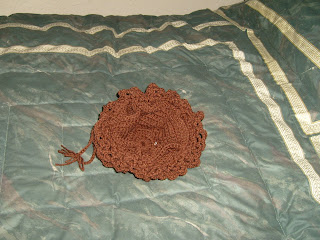Thoughts expressed by this Marine Captain on the matter of veterans healing from their war experiences articulates much better than I some of the thoughts I have tried to express…
I have taken exception to the activism among some of the anti-war groups that are too quick to usurp the veterans' expression of pain as an extension and endorsement of the group's own dissent message.
citing excerpt from the article;
The crucial mistake being made, I think, by so many in the pro-war, antiwar and apolitical populations alike, is their assumptions that the outbursts of veterans are necessarily whole-hearted expressions of dissent. More likely, they are expressions of pain.
The Primacy of Healing: Politics and Combat Stress in America
By Tyler E. Boudreau | Truthout
I am a veteran of the war in Iraq. Like many, I came home bearing an unexpected skepticism toward our operations there and a fresh perspective on America's use of military power. And also like many, I found myself emotionally and psychologically harried by my experiences on the battlefield. But unlike many, I landed after discharge in a community where criticism for the war was both socially acceptable and, in fact, quite common, leaving me free to process a distress which was directly connected to US foreign policy. I was, literally and figuratively, right at home. So, I couldn't help noticing how the political dissent of my community was facilitating my mental healing. That has given me reason to consider all the ways in which politics has corresponded with and influenced the understanding and acceptance of combat stress. And while combat stress survivors have, in some ways, benefited from this relationship; they have suffered from it as well.
Combat stress has a stigmatic heritage, well-recognized now, but that was not always so. World War I was an era in which distraught soldiers were often labeled "men of deficient character"; and yet, the unspeakable carnage of its battles seemed to have offered latitude enough in the aftermath for the painful expressions of its veterans. But after the infinitely more popular World War II, veterans became known more for reticence than effusion and for a stoical veneer beneath which (we know now) a growing tumult was quietly raging. With the country so steeped in enthusiasm, it is not surprising that their invisible wounds went largely unnoticed. After all, with whom, in such a climate, might a veteran have shared his horrible stories?
Vietnam marked a new era for politics and for combat stress. The antiwar movement was never so vociferous, the veterans never so outspoken. And the term "Post-Traumatic Stress" was virtually nonexistent; it was not listed in the Diagnostic and Statistical Manual of Mental Disorders (DSM) until 1980. Widespread criticism of the conflict changed all that. The antiwar movement did not merely give veterans room to recover; it created space in the American consciousness for the possibility that the experiences from war could, in fact, be psychologically devastating. This consequently opened the door to the study of combat stress. Today, after six years in Iraq (eight in Afghanistan), combat stress is nearly taken for granted as an innate component of war. And yet the stigma survives throughout the country, in the military, and even in the mental health field. Why?
The trouble with combat stress (and the traumatic accounts that go with it) is its tendency to call into question the morality of military action. Regardless of the policies, the objectives, or the administrations that enact them, war's essence is challenged outright by the mere existence of combat stress. Upon witnessing the sundered consciousnesses of so many returning veterans and hearing about all the horrible things they endured and committed, one finds it difficult not to conclude that the battlefield must truly be a horrible place. Of course, the justness of war is not defined by its casualties alone, but when the moral compasses of young soldiers are spun to the point where they find it difficult to bear their own skins (as we've seen expressed in the record suicides of late), it leads to a natural suspicion about the moral direction of the war overall. And that is precisely the problem. Like it or not, combat stress is, in its own way, a political statement. It is a silent judgment of war (and of society), and that is why the understanding and treatment of it remain perpetually stifled.
For instance, there has been recent discussion within the psychiatric community about reducing the criteria for post-traumatic stress in the pending DSM-V or restricting the types of events that might be deemed traumatic. The "disorder," some psychiatrists feel, has become too broadly defined, which has contributed to imprecise data collection. Their claim, in other words, is that too many people have been diagnosed with post-traumatic stress. This must be the only epidemic in human history whose remedy is simply to eliminate the symptoms by which one is diagnosed, thereby normalizing the condition itself, which, in this case, is the psychological effects of war.
This is reminiscent, I think, of Freud's famous study of "hysteria," in which he concluded that the young women suffering from the said illness had been traumatized by sexual abuse. But in noticing the massive number of hysteria cases throughout society, he suddenly realized the dark implications of his findings. The epidemic was rape, not hysteria. That was apparently too much to bear for Freud or for society. Shortly after publishing his conclusions, he recanted them all and drummed up a new theory: These women - the patients with whom he'd worked passionately for over a decade - were just plain crazy. The renowned doctor turned his back on his patients and on the truth, the hysteria was normalized, and the abuse carried on. Combat stress appears to be heading in rather the same direction.
The link between politics and combat stress is hardly subtle; it is intuitive. Articulated or not, people sense it. For example, across the country there have cropped up literally hundreds of grass roots organizations and projects formed to reintegrate veterans and help them through the process of coming home. And in nearly every one of them, you will find some disclaimer or note of vigorous neutrality. "This is about veterans, not politics!" they practically chant. The very presence of this message reiterated ad nauseam is enough to let anyone hearing it know that this absolutely is about politics and that politics are inextricably bound to healing. These attempts at nonpartisan reintegration are fashionable - even admirable - but sadly destined to fail on a large scale because communalizing healing is not possible without first communalizing war. And the wars in Iraq and Afghanistan are anything but communalized.
All the while that this effort to segregate the veterans from their wars goes on, the very same veterans will be searching for meaning behind their war experiences, and they will inevitably reach politics because, as Karl Von Clausewitz notoriously points out, "war is the continuation of politics by other means." Whatever conclusions veterans arrive at in the aftermath, one can be sure they will be politically charged. To deny the ruminations of veterans on the grounds of "nonpartisanship" is, for one thing, to ignore the old adage that silence is consent; and for another, it is to prohibit those veterans from processing a major element of their torment. On the other hand, to embrace their political outbursts too fervently or to focus too narrowly on the partisan weight of their every word is to lose sight of the central process underway. That is what is happening now across the country.
The insidious reluctance towards combat stress that one almost expects to find in the military has plagued the home front as well. In communities, which have adamantly supported the war in Iraq, returning veterans have found their ability to express pain often inhibited or even forcefully suppressed because it tends to sound too much like criticism. Those whose distress results from the danger they experienced or the death they narrowly escaped find at least some level of acceptance. But for those whose angst comes specifically from their deeds in war - from the violence they inflicted or from the deaths they caused - those veterans face a much stiffer resistance.
Members of my former unit hailing from various parts of the country have found themselves practically gagged by the pro-war culture of their own hometowns, leaving them no with way to process their pain and no way to heal. So strong is the intolerance for dissent, which their traumatic memories seem to represent, they are forced to process their pain through drinking, drugs, violence and a host of other illegal or self-destructive activities. These veterans come to understand one immutable truth: It is better to break the law than break the faith. If they turn reckless or criminal, they might do some jail time, but if they turn their backs on the war and on the troops, their former comrades, they will certainly face ostracism from their communities. And that is a far harsher penalty for anyone, let alone an unhinged combat veteran. Such patterns of emotional oppression must seem rather obvious to members of the antiwar community, who generally take the phrases "recovering from war" and "opposing war" to mean the same thing. In many ways, the two terms can be, and indeed are, synonymous, although not inherently so. The distinction may be slight, but I have found a great deal of misunderstanding can gather between them. Traumatic healing is not the same thing as political activism. They are driven by different forces, and so must be treated differently. This is a lesson that goes missed all too often.
When I first came home, I got involved with some activism, and I remember a friend said to me, "Be careful." I asked him what he meant and he told me the story of another outspoken veteran who'd been invited to an antiwar rally. "He was talking about his time in war. He was screaming. His eyeballs were red. He was foaming at the mouth. Everybody loved it. They hooted, and hollered, and called out his name. And when he was done telling his story, they just let him go home - by himself - and stew in all those juices." My friend shook his head disapprovingly and said to me, "Remember, the antiwar crowd cares about one thing - antiwar, not veterans." That may not have been an entirely accurate or fair assessment of the entire movement, but since coming home and having participated in a few rallies myself I've seen enough of the overzealous encouragement and standing ovations to confirm my friend's suspicion. On the other hand, having gotten to know so many of the people at those rallies, I suspect now that their oversight was usually not from being callous or manipulative, but from misunderstanding the nature of combat stress and the way it tends to surface itself.
The crucial mistake being made, I think, by so many in the pro-war, antiwar and apolitical populations alike, is their assumptions that the outbursts of veterans are necessarily whole-hearted expressions of dissent. More likely, they are expressions of pain. It just so happens that their context is political and therefore their vocabulary is political as well. And while these expressions may be more affirming to the Left than to the Right, they are, for neither side, exclusively political statements. I don't mean to invalidate the thoughtful contributions of veterans returning from war, including my own, just to point out that there is more going on in the consciousness of a combat veteran than politics.
The search, I would say, is foremost for some level of serenity. Any new ideology picked up along the way is a by-product of the process itself, and one which does not always endure. That's important to remember. Veterans' experiences in war are extreme; their emotions are extreme; so their views will often come out extreme as well, initially at least. But their political destinations remain uncharted because until their pain has receded their maps are incompletely drawn. For my part, I was reading a lot of radical texts when I came home from war and quoting a lot of radical thinkers. That's fine, I think, because radical politics is absolutely one of the products of war. It was an exercise of regurgitation, which had the cathartic benefit of purging a lot of my rage. But I wasn't doing any real thinking of my own. When I finally calmed down enough to contemplate the situation for myself, I found a place that was not exactly where I'd started out and not exactly where those of either political party might have liked to see me, but it was far more satisfying to me because it was a place of my choosing.
The antiwar community has done well in providing receptiveness and acceptance for veterans expressing negative reactions to war and to the politics which drove them there. What they could do better is to not take those expressions too much at their face. (The pro-war and "neutral" communities could probably stand to consider this point, too.) For returning veterans, the healing process is the central activity on-going, not politics. They need time and room to speak their peace; they need the freedom to lash out verbally so they don't feel cornered into finding other, more destructive outlets. At some point most of them will emerge from the inner fray and be able to define more soberly their political disposition and place themselves in communities accordingly. Until then, compassion is required from all - compassion, which includes both tolerance and restraint, both letting politics in and simultaneously keeping it out, and having both the courage to acknowledge the intrinsic presence of politics in combat stress and the wisdom to recognize the primacy of healing.
###
Tyler Boudreau, a former Marine captain, is the author of "Packing Inferno: The Unmaking of a Marine." His web site is www.tylerboudreau.com.

































